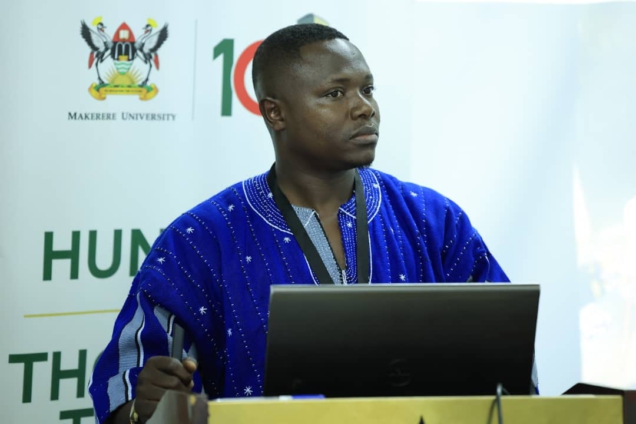
Audio By Carbonatix
A new study is urging assemblies to review their waste management policies, which should include senior high schools, in order to properly address waste management in the country.
It stated that solid waste management issues are not only important in communities, but also extend beyond the normal resident's environment to schools, and thus cannot be ignored because students purchase a variety of materials that generate different types of waste.
According to the research, senior high schools, regardless of location, are experiencing population explosions as a result of the Free SHS policy. This increase in population has resulted in an increase in waste generation on various SHS campuses, which has the potential to be a source of many infectious diseases such as cholera, diarrhea, and, in some cases, malaria.
Dr. Simon Boateng, the study's lead researcher, stated that the study, titled Solid Waste Management Practices and Challenges in Rural and Urban Senior High Schools in Ashanti Region, published in the Journal of Environmental and Public Health was to examine how SHSs are prepared to face this problem regarding solid waste management practices.
He said water bottles, polythene bags, and other materials that generate solid waste can be found all over the school grounds. It should be noted that as a result of this, there has been a rapid increase in inorganic (plastic waste) waste on school campuses.
The study discovered that there are solid waste management practices (i.e. waste collection, handling, storage, etc.) in Senior High Schools, but they are not without problems.
According to the study, urban senior high schools had irregular solid waste collection by some waste management companies, but rural schools did not. Rural schools continue to dump waste in open dumping areas.
The summary is that solid waste management is a problem in Senior High Schools as a consequence of the population increase on campuses. So the recommendation is that the District Assemblies should not only concentrate on the communities, but also consciously extend their regular services to the various SHS campuses.
In both urban and rural senior high schools, the issue of insufficient resources for effective waste management was a persistent challenge. While poor student attitudes toward waste management were a major constraint for rural schools, urban schools faced a challenge in the form of a poor waste collection routine.
In Ghana, urban domestic waste collection services are frequently provided for a fee by local government authorities or private companies, whereas rural residents dump their solid waste for free on open dumping sites.
The study recommended that school officials form environmental education clubs in order to promote effective waste management practices among students, particularly those from rural areas. The group would assist in educating other students about effective waste management practices.
This peer sensitisation is key, as students tend to heed their friends when they are on campus. Waste management policies by the district assemblies should not be exclusive to only the communities as senior high schools have been experiencing population explosion with the introduction of the free senior high school," Dr. Boateng said.
He indicated that, school officials must promote solid waste segregation among students on campus. “Putrescible food/garden wastes can thus be converted into organic manure for school gardens. Nonputrescible wastes, on the other hand, such as plastic, can be recycled for other purposes.”
Latest Stories
-
First Atlantic Bank PLC marks major milestone with oversubscribed IPO and upcoming GSE listing
9 minutes -
Trade Minister meets tomato traders and transporters to resolve the sector’s challenges
18 minutes -
African Summit 2025 opens in Accra
26 minutes -
MultiChoice Ghana rewards DStv premium subscribers with UK Premier League experience
47 minutes -
Three GCTU scholars named among world’s top 2% scientists
49 minutes -
IMF Executive Board completes the fifth review under the extended Credit Facility arrangement with Ghana
53 minutes -
Dr. Zaato criticises government for sending engineers abroad while local projects stall
55 minutes -
Today’s Front pages: Thursday, December 18, 2025
2 hours -
Let’s rally behind Bawumia to rebuild and reclaim power in 2028 – Opoku Prempeh to NPP faithful
2 hours -
UK and Ghana co-host African Development Fund 17 Pledging Conference in London
2 hours -
Work yourself out of a job: The fearless path to leadership legacy
2 hours -
Empower institutions, not politicians, to win the galamsey fight – Kokofu
2 hours -
Mankessim Omanhen declares lithium lands ‘Artificial Disaster Zones’
2 hours -
Funerals, family visits drive GH¢6.6bn in domestic tourism
2 hours -
Christmas fever in Mother Ghana
3 hours

